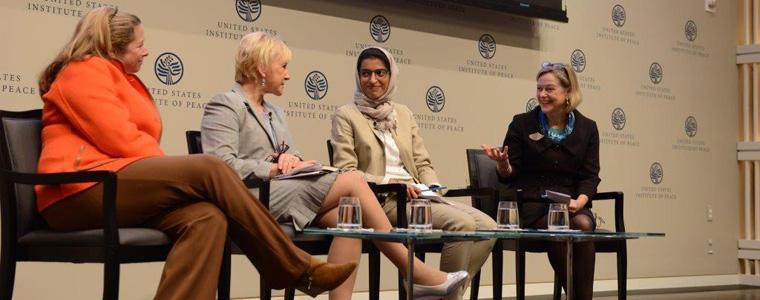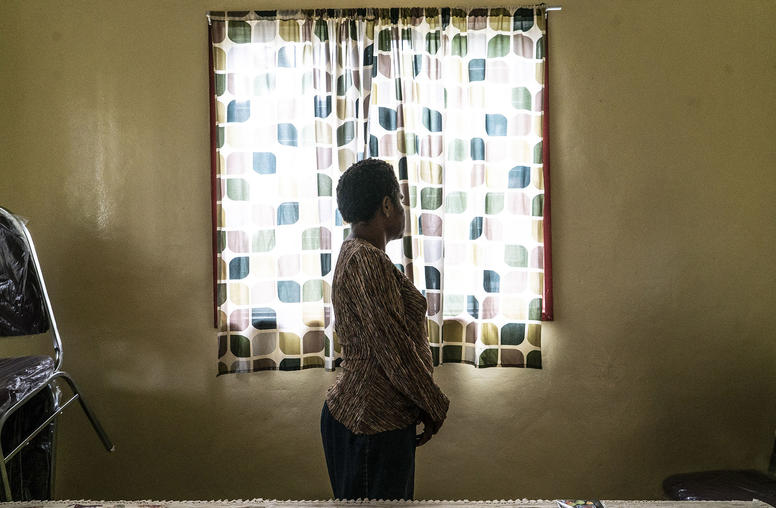Inaugural Sheikha Fatima Lectureship: Messengers of Peacebuilding
On May 9th the Institute held the inaugural Sheikha Fatima Lectureship at its headquarters in Washington, DC. This event featured four distinguished women leaders who examined the critical importance and the impact of communicating stories of women and peacebuilding through media, public affairs, film, and philanthropy.

In recognition of women as peacebuilders, the United States Institute of Peace has established the Sheikha Fatima Lectureship series around Women at the Table, with the first annual lecture focusing on women as “Messengers” of Peacebuilding. Building lasting peace and security requires women’s participation. In order to create a sustainable peace, women have to be represented at the table.
It was through the generosity of Her Highness Sheikha Fatima bint Mubarak Al Ketbi, the wife of the late Sheikh Zayed bin Sultan Al Nahyan, founder and first president of the United Arab Emirates, that the Institute of Peace has named the north atrium of the headquarters building the “International Women’s Commons” to advance the progress of women as peacemakers.
The event featured the following speakers:
- Noura Al Kaabi
Chief Executive Officer, Media Zone Authority-Abu Dhabi (twofour54) - Abigail E. Disney
Filmmaker, Philanthropist and Activist - Tara D. Sonenshine
Under Secretary, Public Diplomacy and Public Affairs, U.S. Department of State - Margot Wallström
Former Special Representative to the UN Secretary-General on Sexual Violence in Conflict - Kathleen Kuehnast
Director, Center for Gender and Peacebuilding, USIP (moderator)



